MercoPress. South Atlantic News Agency
Tag: Central Bank
-
Thursday, February 10th 2022 - 09:00 UTC
The Future of Money: Gearing up for Central Bank Digital Currency

By Kristalina Georgieva, IMF Managing Director – Let me start by thanking the Atlantic Council for providing a fitting venue to discuss central banks’ forays into Digital Currencies.
-
Friday, July 16th 2021 - 09:47 UTC
CPI climbs 3.2% in June in Argentina, 25.3% in first semester of 2021

The Argentine Central Bank's monthly Survey of Market Expectations (REM) has matched the National Institute of Statistics and Census (INDEC) announcement Thursday of a 3.2% increase in retail prices nationwide.
-
Monday, April 20th 2020 - 07:37 UTC
Brazilian central bank estimates economy will begin to recover in the fourth quarter

Brazil's central bank president Roberto Campos Neto said this weekend that Latin America's largest economy will begin to recover from the coronavirus crisis in the fourth quarter, according to an interview in local media.
-
Thursday, March 19th 2020 - 08:25 UTC
Brazil central bank cuts benchmark rate 50 points to a record low of 3.75%
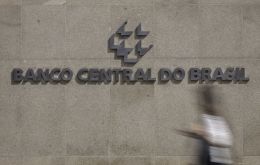
Brazil’s central bank on Wednesday cut its benchmark interest rate by 50 basis points to a record-low 3.75% to cushion the economic blow of the coronavirus pandemic but signaled no rush to cut again and emphasized the need for more economic reforms.
-
Tuesday, February 4th 2020 - 08:29 UTC
Coronavirus hits Chinese markets and the Yuan, despite central bank liquidity injection

Investors erased US$ 393 billion from China’s benchmark stock index on Monday, sold the Yuan and dumped commodities as fears about the spreading coronavirus and its economic impact drove selling on the first day of trade in China since the Lunar New Year.
-
Monday, February 3rd 2020 - 07:40 UTC
Massive injection of liquidity in China to help counter economic effects of the epidemic
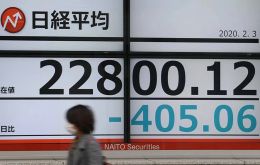
China's central bank said it will inject 1.2 trillion Yuan (US$ 174 billion) worth of liquidity into the markets via reverse repo operations on Monday as its stock markets prepare to reopen amid an outbreak of a new coronavirus.
-
Wednesday, September 25th 2019 - 09:49 UTC
Moody's urges Brazil to implement economic reform and balance public finances
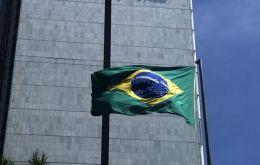
An improvement in Brazil’s sovereign credit rating hinges more on stronger economic growth than lower interest rates, rating agency Moody’s said on Tuesday, urging economic reform and the shoring up of public finances.
-
Wednesday, September 25th 2019 - 09:38 UTC
Persistently low inflation in Brazil anticipates further cut in interest rate
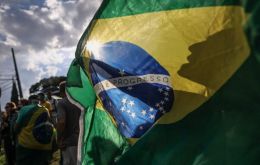
Gradual economic growth and persistently low inflation in Brazil are likely to pave the way for a further reduction in interest rates, the country’s central bank indicated on Tuesday, warning that global economic conditions appear to be deteriorating.
-
Thursday, June 20th 2019 - 08:50 UTC
Brazil central bank leaves benchmark rate at 6.50%; forecasts of 5.50% by December
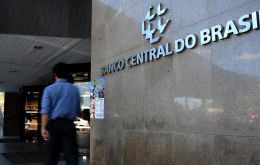
Brazil’s central bank held its benchmark interest rate at a record-low 6.50% on Wednesday, as expected, holding back from signalling looser policy because of doubts on economic reforms. The scenario outlined by policymakers was one of anaemic economic growth and high levels of economic slack putting downward pressure on inflation at home, plus the prospect of interest rates coming down in major developed economies.
-
Thursday, June 13th 2019 - 08:52 UTC
Fiscal reforms crucial for Brazil's economy recovery, says the Central bank

The Brazilian economy’s ability to emerge from its current funk and return to “more robust” levels of growth largely hinges on the approval and implementation of fiscal reforms, the central bank’s deputy governor said in London.
